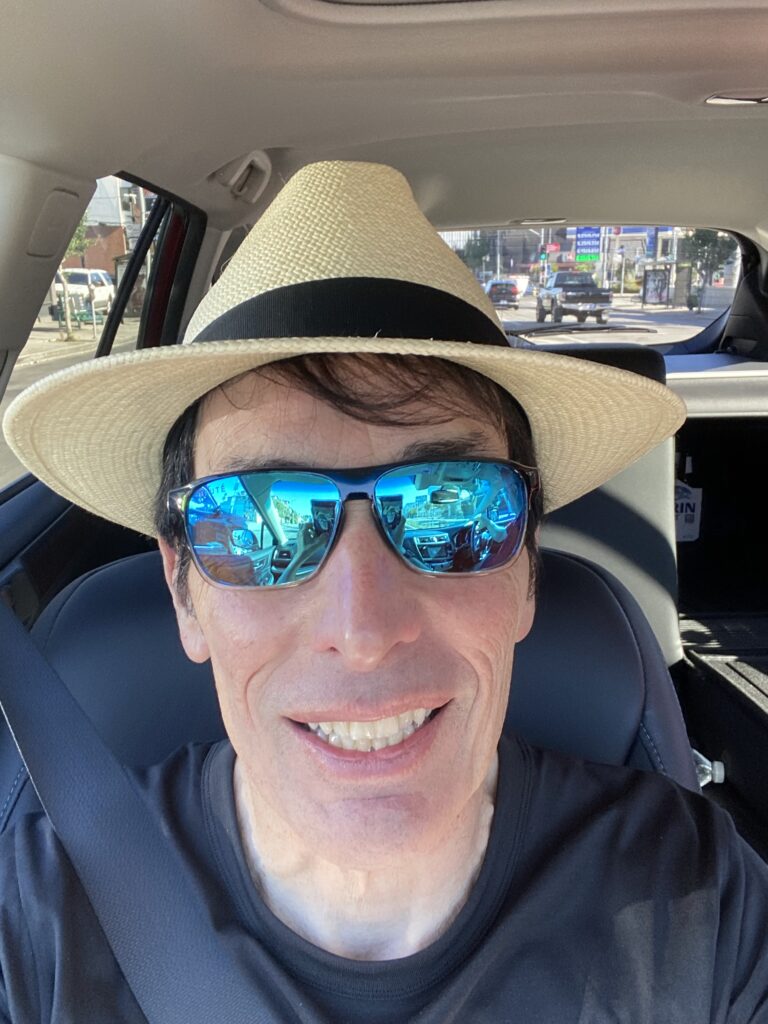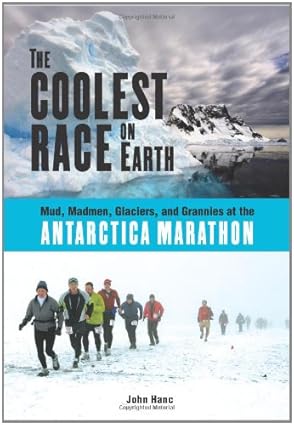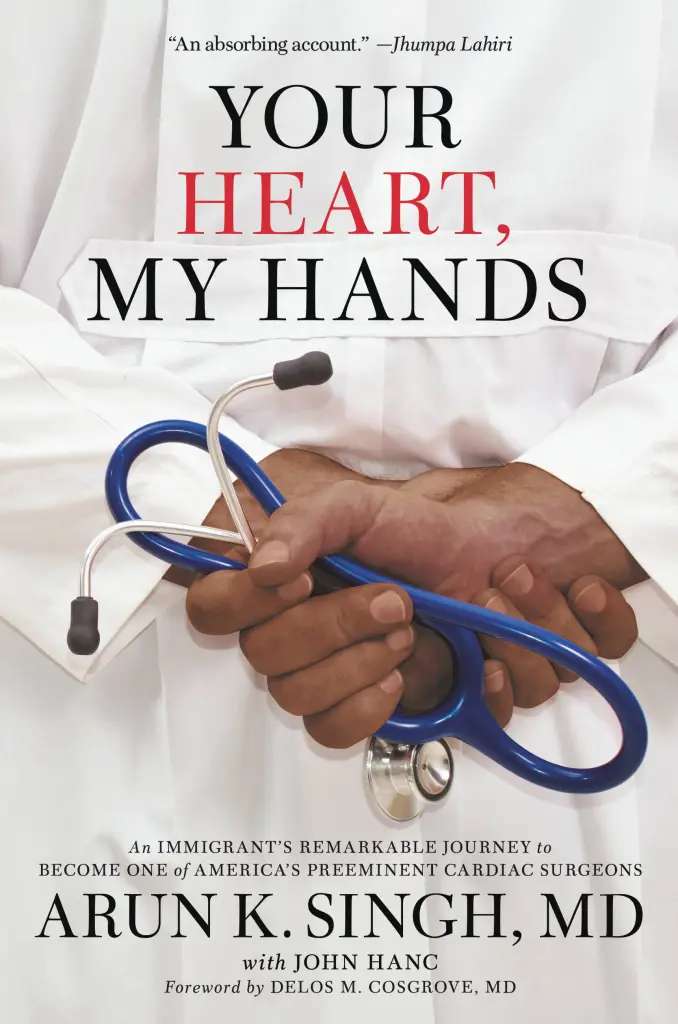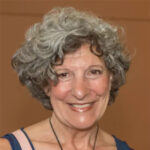John Hanc is the quintessential freelance writing multi-hyphenate. In a career that’s spanned more than 30 years, he’s worked as a freelance journalist, nonfiction book author, ghostwriter, and journalism professor – often wearing several of those hats at once.

After retiring from a tenured job teaching journalism at New York Institute of Technology, Hanc stepped into an adjunct professor position at Fordham University in 2023. In February, he brought some of his Fordham students to the ASJA conference in New York.

When Hanc isn’t teaching, he’s probably working on a book. Hanc has written or collaborated on close to 25. Several have won ASJA Awards. The most recent is “Your Heart, My Hands,” By Arun Singh, MD, with John Hanc, which took first place in the 2020 ASJA Awards memoir category. Hanc also placed first in the memoir category in 2010 for his solo book, “The Coolest Race on Earth: Mud, Madmen, Glaciers, and Grannies at the Antarctica Marathon” (Chicago Review Press). And his collaboration with cyclist and diabetes advocate Phil Southerland on the latter’s memoir, “Not Dead Yet,” won honorable mention in the memoir category in 2012.
In a recent email interview, Hanc explained how he got into writing, his experience collaborating on books, what he’s learned as a journalism instructor, his favorite ASJA benefits, and more. Responses have been edited for length and clarity.
What led you to writing and freelancing?
I’ve been writing since I was a kid. Bad stories, derivative comic books; later mediocre stories for my high school newspaper; eventually to gradually-improving pieces for my college student publication (Emerson College’s Berkeley Beacon), and finally to my first professionally freelanced piece.
What is the craziest, weirdest, or most out of the ordinary experience you have had as a book collaborator?
I’ve been fortunate to have a lot of inspiring, talented, and accomplished author-clients. Most of them, although justifiably proud of their own achievements, are kind enough to allow their collaborator to get a little credit, so my name is usually on the cover, in smaller type as a “with.” I’m very grateful for that.

One of my most extraordinary experiences as a co-writer was with my friend and author, cardiac surgeon Arun Singh, MD, author of “Your Heart, My Hands.” The book is an account of his remarkable rise from a harsh and troubled childhood in post-partition India to becoming one of the most prolific heart surgeons in the U.S.
Early on, I told Arun, by then retired, that I needed to better understand how cardiac surgery works, what it’s like to do it. “Oh so you want to see cardiac surgery?” he said with a laugh. “We can arrange that.” The next thing I know I’m standing in an operating theater in Massachusetts. That day, I got to watch a heart procedure close up. As I’m sure most ASJA members will understand, having that experience was valuable for writing that book, which won four awards, including first place Nautilus and ASJA awards for memoir (in 2020).
What’s your specialty?
It really changes depending on the project, particularly with books. Between books and articles, right now I’m writing about brain health, autism, innovation, museums, housing, and history. But I just did a story for Newsday about bird photography on Long Island.
How did you start teaching?
I had a couple of wonderful professors at Emerson College in Boston, and later, as a graduate student, at the University of Wisconsin’s journalism school. They were just terrific lecturers, a mode of teaching that is somewhat (and in my view, wrongly) considered out of style today. I wanted to be like them and spark the magic I saw in their classrooms. As soon as I had a master’s degree, I started looking around for part-time teaching opportunities. I stumbled into a full-time, tenured position at New York Institute of Technology, which then had a really good, hands-on program in mass communications, including broadcast journalism. I was there for over 30 years and then took a buyout. Since 2023, I’ve been teaching nonfiction writing in the English department of Fordham University.
What’s different about teaching journalism students today than say 10 or 20 years ago?
Not as much as you might think. Certainly there are generational changes between the Gen X students I had when I first started teaching in the 90s, and the Gen Z students I have now. But it seems to me that students who want to communicate, write – young people who have something to say or are eager to tell stories – are still motivated by that same drive. The technologies change of course, but the impetus is the same: they want to break news or build creative castles, they want to communicate.
What’s something writers should think about before taking a college adjunct or instructor gig?
The best teaching advice I ever got: teach the students, not the subject. Meaning, don’t think that your job as an instructor is to dump every iota of knowledge and experience you have on the heads of these students. Your job is to meet them where they are, and depending on the class, help them understand what effective writing means, and help them become the best writer they can be. Getting them excited to read is a good first step.
How do you juggle journalism, ghostwriting or editing books, and teaching?
Easy: I’m a workaholic. LOL. With the major caveat that, most of the time, I love the work I do.
When and why did you join ASJA?
My friend and literary agent Linda Konner recommended I join. It was one of many good pieces of advice Linda has given me over the years.
What is the ASJA benefit you appreciate the most, and why?
I always find something useful in the newsletter. I think the ASJA Awards are important. It’s a peer-reviewed competition, which makes winning even more meaningful. This year, I was also reminded what a worthwhile experience the annual conference is when I brought about nine of my Fordham writing students to the event. They loved it!
When you’re not working, what do you do for fun?
I’m a long-time runner and gym goer (running and fitness was my entry point into professional writing), and since the pandemic have added on walking to my daily workouts. I love to listen to podcasts and audiobooks while I walk and run. I’m a huge fan of British/UK as well as American history, so I’m often veering towards books and podcasts about those topics.
I really enjoyed listening to Al Pacino’s memoir, “Sonny Boy.” I’m now listening to a terrific novel by Robert Harris, a former journalist who writes fabulous historical fiction. He wrote “Conclave,” the movie version of which was nominated for an Academy Award. The book I’m reading is “Act of Oblivion,” his riveting historical novel about the hunt in colonial New England for two of the regicides, the men involved in executing King Charles I.
Michelle Rafter is a business reporter turned ghostwriter based in Portland, Oregon. She’s ASJA’s publications chair and has been a member since 2010.

